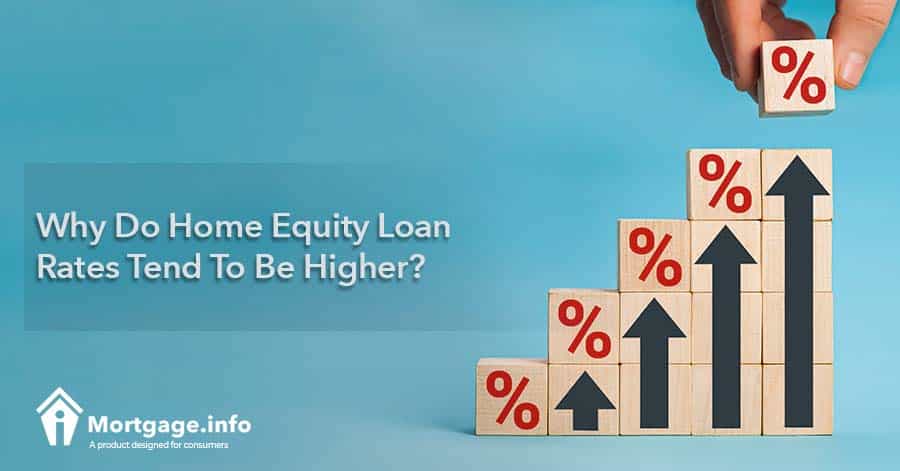
Have you noticed that home equity loan rates are higher than standard mortgage rates? In general, you can obtain a much lower interest rate for a first mortgage than any type of equity loan strictly because equity loans are a much higher risk than first mortgages.
The First Lender has Priority
One of the main reasons you will find higher interest rates on home equity loans than first mortgages is because of the risk the lender takes. Even though your home serves as collateral for the second mortgage, the first lender still takes priority on the proceeds of the loan should you default. This means the home equity lender might never see a dime of the money they put out to loan you the money depending on the value of the home. In order to make up for this, they charge higher interest rates so they at least make some money while you make your payments.
You Already Have a Mortgage
If you take out a home equity line of credit, chances are that you already have a first mortgage. This means you already have a portion of your monthly income designated for the principal, interest, taxes, and insurance for the home. If you add on a home equity loan, you increase the front-end debt ratio, or the amount of money allocated for your housing expenses. This puts the home equity lender in a risky position because you still have your other expenses to cover including any installment loans, credit card debt, utilities, and day-to-day expenses. The higher interest rate signifies the higher risk the lender takes.
You Have Continual Access to Funds
There are two ways you can take out a home equity loan. The first is a fixed loan which you receive your money in one lump sum and the other is a line of credit, which works like a credit card. When you have continual access to funds, you never truly pay down the principal until the draw period is over. For most home equity loans, this means that you can draw funds for the first ten years. Technically speaking, you are not required to make any principal payments during this time. This leaves the lender without that money for a long period of time. After the initial ten years are over, the lender requires you to make principal payments over a 10 to 15 year period.
Home Equity Loan Rates are Tied to Prime
Another reason home equity loan rates are higher is because they are tied to the prime rate. This means that when the prime rate adjusts, your interest rate adjusts. This could mean adjusting up or down, depending on the state of the market. How much your interest rate adjusts also depends on the margin set for your loan. This depends on the level of risk you pose to the lender. Borrowers with good credit, stable income, an average LTV, and low DTI will have a lower margin than someone with bad credit, a high DTI, and high LTV.
As with any other loan program, the lender determines your interest rate and every lender has different thresholds. One lender might quote you a higher interest rate than another, which is why you need to shop around when searching for a home equity loan. Don’t assume that the rate that one lender gives you is the norm for the area – shop around to make sure that you can compare apples to apples when it comes to the fees and the interest rate a lender charges.
While the home equity loan is a riskier loan than any other loan type, lenders only approve those borrowers that qualify for the loan. That being said, you do not have to pay crazy high-interest rates on your HELOC. Shop around for home equity loan rates with several lenders until you find the rate that is most affordable for you. Make sure that you do not overlook the fees they charge both during the processing of the loan and once you have the loan as well as those can play a role in the affordability of your home equity loan. Once you know all of the details you can make an informed decision for yourself.
